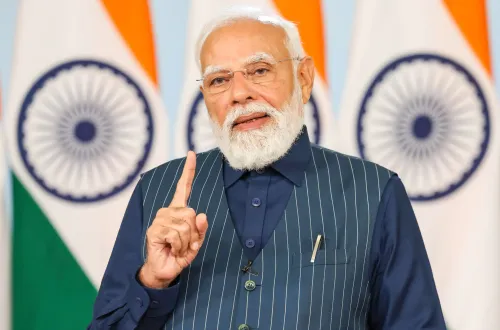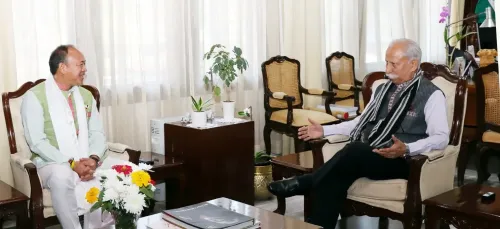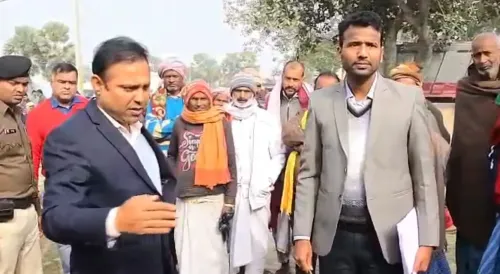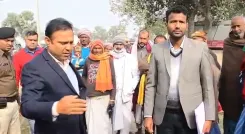Can ECI Redefine Voting in India with 21 Initiatives?
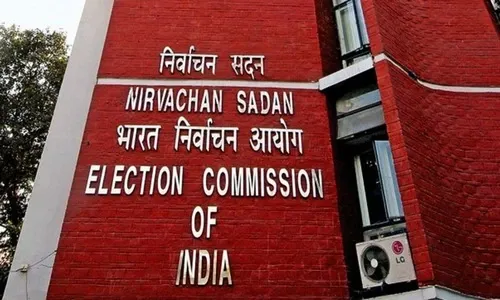
Synopsis
Key Takeaways
- Reduced congestion at polling stations by lowering the maximum number of voters per station.
- Improved access with additional polling booths in high-density areas.
- Streamlined electoral roll management with integrated death registration data.
- User-friendly Voter Information Slips for easier navigation.
- Enhanced training for Booth Level Officers and political party representatives.
New Delhi, May 29 (NationPress) In a significant effort to enhance electoral management and facilitate voters, the Election Commission of India (ECI) has launched 21 innovative initiatives within the last 100 days. Under the guidance of the 26th Chief Election Commissioner (CEC) Gyanesh Kumar, these reforms represent a robust strategic approach targeting various areas such as procedural transparency, technological advancements, and inclusive stakeholder engagement in the electoral process, according to ECI sources.
The framework for these initiatives was established during the Conference of Chief Electoral Officers (CEOs) in March 2025, with the participation of Election Commissioners (ECs) Dr. Sukhbir Singh Sandhu and Dr. Vivek Joshi. These measures reflect a proactive and pragmatic strategy during the initial days of the new CEC’s leadership, the sources added.
Among the prominent changes, the ECI has reduced the maximum number of voters per polling station from 1,500 to 1,200 to alleviate congestion and enhance the voting experience. Furthermore, additional polling booths will be set up in densely populated regions, especially in gated communities and high-rise buildings, ensuring that no voter has to travel more than 2 km to exercise their right to vote.
To improve electoral roll management, the Commission has integrated death registration data from the Registrar General of India (RGI). This information will facilitate the removal of deceased electors' names following verification by Booth Level Officers (BLOs), who play a crucial role in voter verification at the ground level.
The ECI has revamped the Voter Information Slips to make them more user-friendly, prominently displaying serial and part numbers. In a move aimed at enhancing voter convenience, the Commission will now provide a mobile deposit facility just outside polling stations, allowing voters to safely store their belongings before casting their votes.
In a noteworthy adjustment to campaign regulations, the ECI has relaxed the distance limit for party booths. Previously mandated to be at least 200 metres away, political party booths can now be established just beyond 100 metres from polling station entrances, improving voter outreach without jeopardizing electoral integrity.
To boost operational efficiency, a new integrated digital platform named ECINET has been developed, aiming to consolidate over 40 existing applications and websites into a single portal for all stakeholders. While some modules will be trialed in the upcoming bypolls, the complete platform is anticipated to be launched ahead of the Bihar Assembly elections.
The ECI has addressed the issue of duplicate EPIC (Elector Photo Identity Card) numbers by implementing a new system to ensure unique EPIC numbers for each voter.
Recognizing the necessity for extensive stakeholder engagement, the ECI has organized 4,719 meetings throughout the country, involving over 28,000 political party representatives at various levels. Additional discussions were conducted in New Delhi with representatives from national and state parties, including the AAP, BJP, BSP, CPI(M), and NPP, with plans for further consultations following the elections.
Capacity-building efforts have been significantly enhanced. The India International Institute of Democracy and Election Management (IIIDEM) has already trained over 3,500 Booth Level Supervisors, with plans to expand this to over 100,000 in the coming years. An additional 6,000 BLOs and supervisors are set to receive training in the next 45 days, particularly in states preparing for upcoming elections, such as Bihar, Tamil Nadu, Puducherry, West Bengal, Kerala, and Assam.
This training initiative has also included Booth Level Agents (BLAs) of political parties and media officials from CEO offices across all 36 states and union territories. Additionally, police officers in Bihar have received specialized training to ensure effective law enforcement during elections.
To enhance internal coordination, the ECI has implemented biometric attendance at its headquarters, introduced a digital E-Office system, and commenced regular CEO-level review meetings to synchronize state and central election operations.
The Commission has identified 28 categories of stakeholders involved in the electoral process, ranging from voters to officials and party representatives. Customized training modules are being developed for each group, based on the Representation of the People Acts (1950 & 1951), Registration of Electors Rules (1960), and Conduct of Election Rules (1961).
To strengthen the legal framework, a National Conference of Counsels representing the ECI and CEOs was held in New Delhi, attended by senior advocates from the Supreme Court and 28 High Courts, along with officials and legal advisors from all states and union territories.
This reform initiative marks the first time a Special Summary Revision has been conducted ahead of a by-election in accordance with the RP Act, 1950, showcasing the Commission’s commitment to maintaining accurate and up-to-date electoral rolls.
Through these 21 initiatives, the ECI has taken significant strides towards modernizing India’s electoral framework, making the process more inclusive, transparent, and focused on citizens' needs, according to sources. These reforms are part of an ongoing effort to enhance public trust in democratic institutions and adapt to the changing demands of the electorate.


